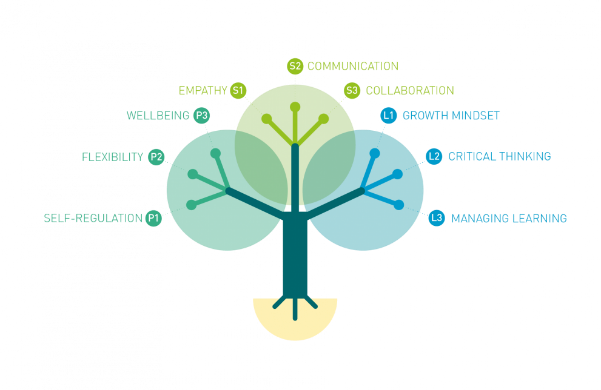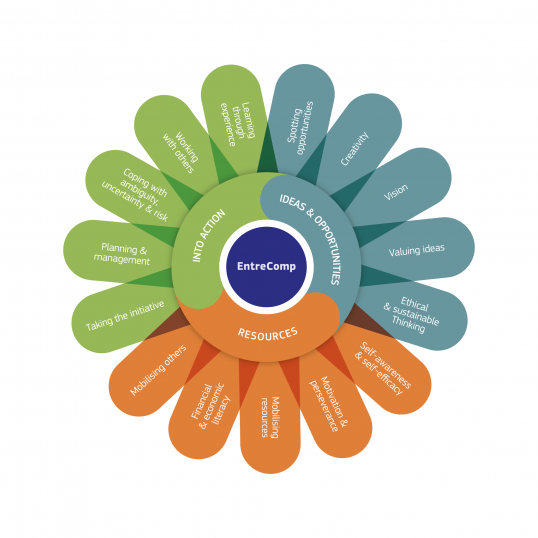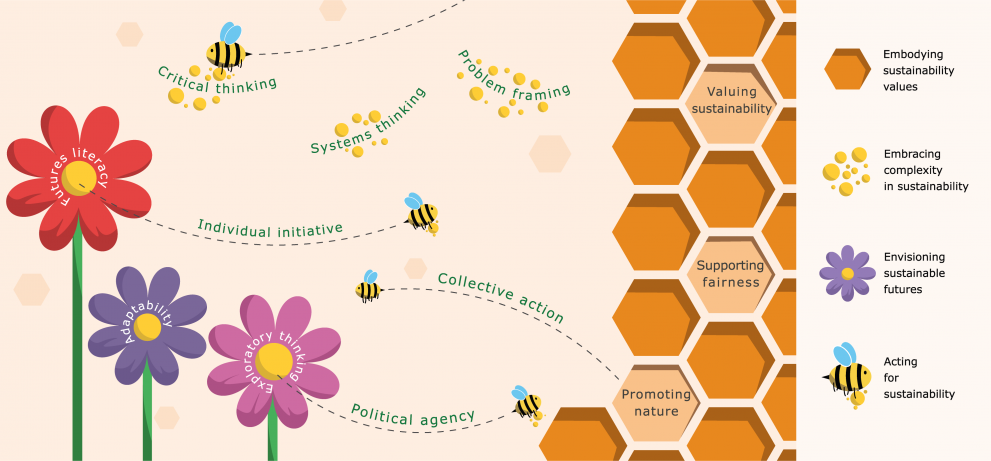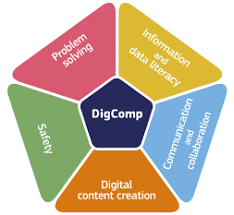European Competence Frameworks
‘Today’s world is interconnected and it’s changing rapidly. We all need to change and constantly adapt. Adaptation requires us to develop new skills, new know-how, and new competences’.
The European Framework for Personal, Social and Learning to Learn Key Competence Framework (LifeComp)
In May 2018, the Council of the European Union adopted an updated Recommendation on Key Competences for Lifelong Learning. These competences are fundamental to achieve personal fulfilment and satisfaction, develop ourselves and relate to others, learn how to learn, and keep being employable. They are also essential for social inclusion and our civic participation in society. Following this recommendation, the Joint Research Centre (JRC), the European Commission’s science and knowledge service, in collaboration with the Department for Education, Youth, Sport and Culture (EAC), developed LifeComp: The European Framework for Personal, Social and Learning to Learn Key Competence (2020), including competences that people need to develop troughout their entire life and are given a variety of names, such as ‘21st century skills’, ‘life skills’, ‘socio-emotional skills’, ‘soft skills’, or ‘transversal skills’. LifeComp entails 3 competence areas and 9 specific skills, described at eight proficiency levels through examples of knowledge, skills and attitudes.

The Entrepreneurship Competence Framework (EntreComp)
The development of the entrepreneurial capacity of European citizens and organisations has been one of the key policy objectives for the EU and Member States for many years, and it is one of the eight Key Competences for Lifelong learningm, included in the European Reference Framwork (ERF).
The Joint Research Centre, in partnership with the DG Employment, Social Affairs and Inclusion, has developed EntreComp: The Entrepreneurship Competence Framework (2016, updated in 2018). EntreComp describes entrepreneurship as a lifelong competence, identifies what the elements that make someone entrepreneurial are, and describes them to establish a common reference for initiatives dealing with entrepreneurial learning.
The framework includes 15 specific competences in 3 competence areas, described at eight proficiency levels through examples of knowledge, skills and attitudes. Based on EntreComp, ‘entrepreneurship is when you act upon opportunities and ideas and transform them into value for others. The value that is created can be financial, cultural, or social’.

The European Sustainability Competence Framework (GreenComp)
The development of a European sustainability competency framework is one of the policy actions set out in the European Green Deal, as a catalyst to promote learning on environmental sustainability in the European Union. GreenComp: The European Sustainability Competence Framework (2022) is a reference framework for sustainability competences. It provides a common ground to learners and guidance to educators, advancing a consensual definition of what sustainability as a competence entails. It responds to the growing need for people to improve and develop the knowledge, skills, and attitudes to live, work, and act in a sustainable manner and it comprises 4 competence areas and 12 specific competences, at eight proficiency levels.
Sustainability competences can help learners become systemic and critical thinkers, as well as develop agency and form a knowledge basis for everyone who cares about the planet’s present and future state.

The Digital Competence Framework for Citizens (DigComp)
DigComp: The Digital Competence Framework for Citizens (2013), developed by the European Commission’s Joint Research Centre, identifies the key components of digital competence by providing cases in education and employment contexts. It entails 5 competence areas and 21 specific competences, described at eight proficiency levels through examples of knowledge, skills and attitudes. In DigComp, digital competence is defined as ‘…the confident, critical and responsible use of, and engagement with, digital technologies for learning, at work, and for participation in society. It is defined as a combination of knowledge, skills and attitudes.’ (Council Recommendation on Key Competences for Lifelong Learning, 2018). The framework remains crucial to the EU’s objectives in enhancing digital skills and it is being updated to reflect the evolving nature of digital competence. The latest (fourth) version is DigComp 2.2 (2022). It supports the EU’s Digital Education Action Plan 2021-2027, which in turn contributes to the Commission’s priority ‘A Europe Fit for the Digital Age’ and to Next Generation EU.

